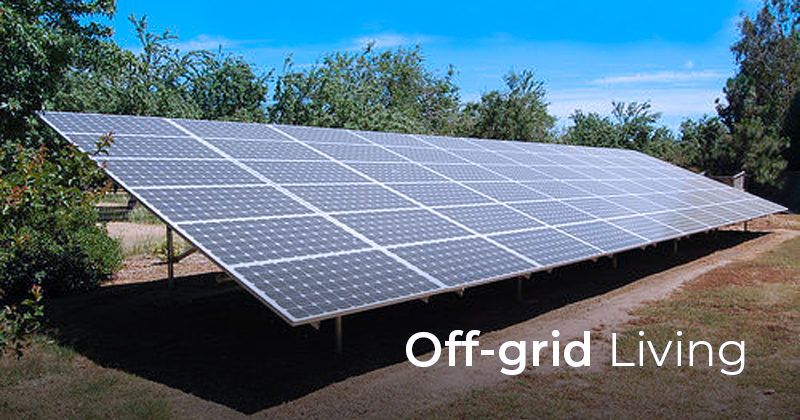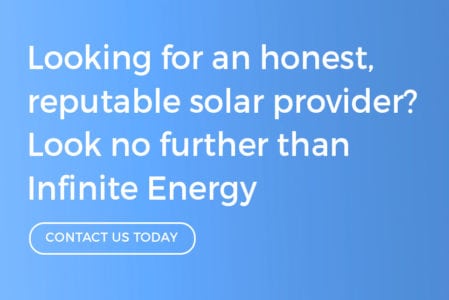Off-grid Essentials

Off-grid living is beginning to become a favourable concept amongst homeowners. In Australia alone, the number of homes in rural and urban areas that are completely off-the-grid are continuing to grow as efficient and reliable systems are now available to support the lifestyle. Many people feel the cost of connecting to the grid is prohibitive and that the pricing of power bills is exorbitant. Others view electricity as an essential service and are no longer willing to be beholden to unresponsive entities for this service.
Living off-grid refers to being completely independent for electricity. An off-grid system, also known as a stand-alone power system, consists of components that capture sunlight, transform it into usable electricity, store excess for use overnight and provide a backup power source in case of unusual events. There are several reasons to consider a life off-the-grid. The most common reasons for choosing the off-grid option is avoidance of the cost of network connection or network connection upgrades. The second most common is constraint of choice, such as when the network operators’ rules prevent homeowners or businesses from installing the appliances or equipment they need to support their lifestyle or business operations.
Should you go off-grid?
The desire to leave the grid altogether and withhold the need to rely on electricity retailers and distribution systems is very appealing. However, you should always consider whether the advantages outweigh the disadvantages for you.
If the following circumstances apply to you then yes, going off grid could be the best solution:
- Your nearest grid connection is more than 500m away with the cost of a grid connection is close to the cost of an off-grid system.
- The network operator won’t allow you to connect a reasonable size solar system
- Your home suffers frequent blackouts
- The power quality is often poor resulting in damage to appliances such as computers and washing machines
If the above doesn’t apply to you, then it may be worth reconsidering. Investing in a solar system and battery combo could be your solution, which still provides you with the option to have access to the grid should you need it.
The Basics
Your energy usage can be broken down to two characteristics:
1. How much energy you use on a daily basis (shown as units/day on your power bill)
2. The maximum amount of power (or maximum demand) you wish to use at any one time
Many people are familiar with the first characteristic as it affects the size of their power bill but not the second characteristic. Maximum demand must be covered by your off-grid power system and is dictated by the number of appliances that are used at the same time, and the instantaneous demand of appliances such as air-conditioners and pumps when they start up (often 3 times their normal usage).
Hence each off-grid system must be individually designed for each installation based on energy consumption habits and is much more complex than a grid-connected solar power system.
Know your energy usage habits
It’s important that you are familiar with your households’ energy usage and consumption habits. Off-grid living puts the balance between energy efficiency costs and energy supply costs in your control. A simple way to understand your usage is to list your appliances, their power rating and typically how often you use them.
Consider what components you need
Once you have determined your power requirements, the process of system design and component selection can be completed by a competent professional.
Consider your motivation
| I am building a new house and I want to minimize the upfront cost | Choose the lower cost option between an off-grid system and a grid connection and a solar system |
| Your network operator won’t allow you to connect a reasonable size solar system | Choose an off-grid system and take control of your electricity |
| Your home suffers frequent blackouts | Choose an off-grid system or a solar-battery system that can meet your maximum demand without the support of the grid |
| The power quality is often poor resulting damage to appliances such as computers and washing machines | Choose an off-grid system or a solar-battery system that can meet your maximum demand without the support of the grid |
| The cost of your power bills is too high | Choose a grid connected solar power system. Consider batteries if a large part of your electricity use occurs between sun down and sun up |
| The overhead power lines represent a high fire risk to your farm/rural property | Choose an off-grid system and remove the old power lines |
| You don’t want to be dependent upon electricity retailers and network operators for your power supply and you know there is a better and more ethical way | Choose an off-grid system and take control of your electricity |
Financial Considerations
The SSRES federal government scheme provides the same incentive for a solar system whether it is connected to the grid or not, however due to the higher cost of an off-grid system this incentive is not usually a deciding factor. Of much greater importance is the reliability and durability of the equipment and the longevity of your supplier.
Look for equipment made by companies that have a long history of off-grid systems and offer a long warranty period.
The strongest indicator of long-term satisfaction is matching the capability of your system to your energy needs, so invest time in understanding your needs and only deal with professionals with a proven track record.
If you’re considering going off-grid and would like more information, please feel free to contact us today for a free, no obligation quote.


